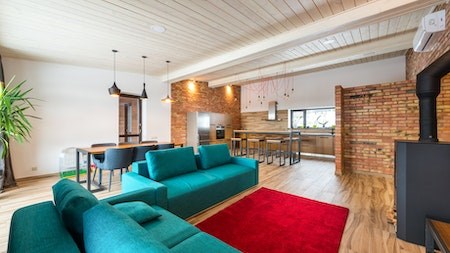The disruptive influence on the office model is set to be one of the main legacies of the COVID-19 pandemic. A mere 15 months ago, the flexibility that thousands of employees around the world enjoy today in terms of where work is done, was almost unthinkable.
But the jury is still out about which is best, as the novelty of work from home (WFH) wore off when employees felt that working from where you live is a lot like living at work. At the same time employees are reluctant to return to the office in the traditional 9-to-5 sense.
"The bottom line is that there is no one-size-fits-all solution, but employers need to be open minded about the needs and preferences of their teams,”
says David Seinker, founder and CEO of The Business Exchange.
He adds that performance and productivity cannot be measured by desk time, but offering employees the option of a pleasant workspace can go a long way in promoting said performance and productivity.
Three businesses across sectors shared their experiences.
Success from anywhere
At the beginning of the year, Salesforce, a cloud-based software company, took a decision to implement a ‘success from anywhere’ model, prompted by employee feedback gathered through a series of well-being surveys.
“Last year, surveys showed that only 32% of employees wanted to return to the office. We then declared the end of the 9-to-5 workday by introducing three new work models: flex, fully remote and office-based,” says Robin Fisher, Senior Area Vice President, Salesforce Emerging Markets.
In April, Salesforce reached a critical milestone in its ‘success from anywhere’ journey, as it began to reopen offices in the US and around the world with a three-staged approach. Additionally, Salesforce has extended the option for all of its employees to work remotely until at least 31 December 2021, regardless of whether a local office has opened or not.
“The office is no longer at the centre of our work day. Just as Salesforce flexed when it moved its offices to the homes, we are now encouraging all employees to flex forward to a new, better way of working. While offices will remain an important part of its strategy as Salesforce begins to reopen, Salesforce will put who, what, and why before where work happens, whether that be in an office, at a customer site, or in a cafe. This is what success from anywhere is all about, succeeding together in a human-centred, digital-first environment. Everyone can finally work from where, when and how, and they'll make the most impact,” Fisher explains.
A case of preference
For Dotgood, it is simply about where team members prefer to work. “We don’t have an official policy but we are finding that most of the team prefer to work from the office, adhering to all the necessary COVID-19 safety protocols. But if someone is more comfortable working from home, we’re more than happy for them to do so,” says Michael Baretta, Managing Director at dot GOOD.
He believes that flexibility is good for staff morale and helps to nurture trust and loyalty. “Because flexibility is important to us as a company, a serviced office space is the ideal solution for us. We’ve got everything we need in an office space without any of the hassle associated with managing the space yourself. It means we can offer the team a central, productive office from which to work and a space to meet with clients and fellow team members if and when they want or need to,” Baretta shared.
The office as a resource
The nature of working in the property sector is such that most of the work happens on the road. “For us, having an office is about offering our agents a resource – a quiet place to do paperwork, make phone calls, meet with clients or liaise with colleagues,” shares Mariska Wiese, Head of Marketing and Design at Veza Properties.
“Our needs are quite dynamic, and tend to change as our company grows, which is why the flexibility of serviced office space suits us perfectly,” she explains.
The preference for serviced office space is growing rapidly and is more than likely thanks to the “all inclusive” packages they offer tenants. “A serviced space, simply, seeks to take the hassle out of everything associated with running an office – the parking, the coffee, the electricity, the IT setup, the cleaning and everything in between,” says Seinker.
“It really helps that all the costs are included in your monthly bill because it makes it far easier to control your expenses and budget accordingly,” says Wiese.
The pandemic has given us an opportunity to experiment with new working practices. Models that would have seemed unthinkable at the start of 2020 have proved to be very successful, paving the way for an approach to work that truly advocates for performance over desk time.
Writer : Delia De Villiers





